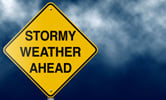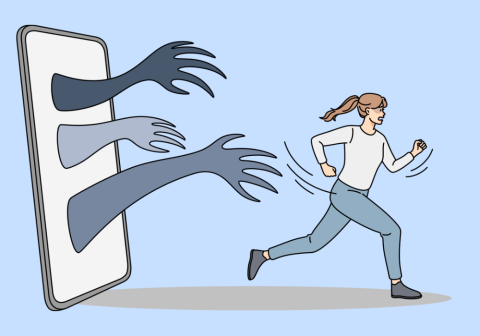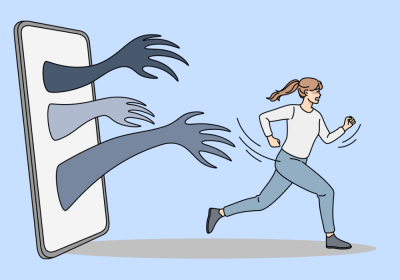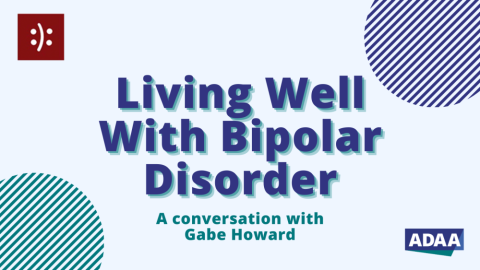Anticipating the arrival of a hurricane, tornado, blizzard, or any severe storm strikes fear and anxiety in the people in its path for good reason. Natural disasters disrupt lives in significant ways, including creating physical and mental health problems and major economic challenges. And the never-ending news about a storm’s arrival may increase your anxiety, stress, and fear.
 Here are some tips to help you take care of your own mental health, as well as your family’s before and after a storm.
Here are some tips to help you take care of your own mental health, as well as your family’s before and after a storm.
Prepare
It’s only natural to feel scared, anxious, and nervous. Recognize your emotions and try these tips to alleviate your anxiety.
- Create a plan — A well-prepared plan for your family can help reduce anxiety and chaos before, during, and afterward. Make an evacuation plan and compile preparedness kits. Get tips from the Red Cross.
- Be informed — Stay up-to-date on weather information and warnings. If you’re aware of the latest information, you may gain a sense of control over the situation.
- Talk it out — Share your fears with family members, friends, a counselor, or others who can offer emotional support.
- Find out more on how to strengthen your emotional well-being before the storm.
- Accept what you can’t control — Nobody can control the path of a storm or its damage. And excessive worrying that one may hit you will not change anything except your emotional well-being.
Take tips from the Mayo Clinic for talking to kids about weather-related anxiety:
- Be calm and supportive. Tell children that thunder won't hurt them. Explain that storms are a normal part of nature.
- Talk about storms matter-of-factly. Some kids may seem afraid of storms, but they're really interested in learning more about them.
- Allow children to face their fears by gradually helping them learn they can handle a fear and other uncertainties of life on their own.
- Help children face their fear of storms by reading about them or watching videos of tornadoes, hurricanes, and other big storms.
- If the anxiety doesn't diminish, or if it begins to create greater stress for the child or the parent, get the assistance of a mental health professional.
After the Storm
Many survivors of severe storms will experience emotional and physical symptoms such as headaches, muscle tension, insomnia, and nausea for days or even weeks afterward.
If you are having difficulty coping, consider the following:
- Do something positive: Donate blood, prepare care packages, or volunteer to help others, all of which can provide a sense of purpose in a situation that feels out of your control.
- Follow your usual daily routine as much as possible.
- Limit your exposure to repeated news stories, which usually increases stress.
- Rest, get exercise, and eat properly. Seek out leisure and recreational activities that involve both mind and body.
- Spend time with trusted loved ones for support.
- Talk with others and seek support from those who have been exposed to the same or similar trauma.
- Recognize that you cannot control everything.
- Talk with a relative, friend, doctor, or spiritual advisor about getting help. Asking for help is a sign of strength, not of weakness.
- Contact a mental health professional if symptoms persist for more than a few weeks and interfere in your carrying out your daily activities.
Prolonged Anxiety and Posttraumatic Stress Disorder
If after several weeks your anxiety symptoms persist, it may be an indication of posttraumatic stress disorder, or PTSD.
Symptoms of PTSD:
- Re-experiencing the trauma through intrusive distressing recollections of the event, flashbacks, and nightmares.
- Emotional numbness and avoidance of places, people, and activities that are reminders of the trauma.
- Increased arousal such as difficulty sleeping and concentrating, feeling jumpy, and being easily irritated and angered.
PTSD is diagnosed after a person experiences symptoms for at least one month following a traumatic event. However symptoms may not appear until several months or even years later.
Helping Children
A key element in a child’s or a teen’s recovery from a traumatic event is the support from parents, teachers, and other adults. Listen to this podcast about treating children with PTSD.
Here are some tips to help your child recover:
- Anticipate needs. Take the initiative and approach children to talk about their feelings and concerns about a traumatic event before they bring it up. It is easier for children if the adults anticipate their needs and open up the lines of communication. This also sends the message that a topic is okay to talk about with adults.
- Use candor — with discretion. This should be the theme of all adult-to-child communication on traumatic incidents. Be honest, but give details and explanations at a level commensurate with the child’s cognitive and emotional capacity. It is healthy and appropriate to begin with more limited sharing that provides a foundation for future elaboration.
- Let kids know how you feel. While adults dealing with children in distress should maintain a moderate level of composure, it is often helpful to let children know that adults, too, experience upsetting feelings. Children need to know that adults are sometimes scared and seek support from those around them and that it is okay to hurt — but that the pain does get better with time.
- Tornadoes, Hurricanes, and Children: How to help alleviate help alleviate emotional consequences
Most children and teenagers are resilient and will return to normal functioning following a natural disaster. If, however, a child’s distress continues to interfere with their lives after a few weeks, it may be time to seek professional help.
Signs of distress include not sleeping or eating; excessive clinging; re-experiencing the event through nightmares, recollections or play; emotional numbing; or persistent fears about disaster. If your child is experiencing these symptoms, seek the assistance of a school counselor or other mental health professional. Find out more about treatment for PTSD and anxiety disorders.















